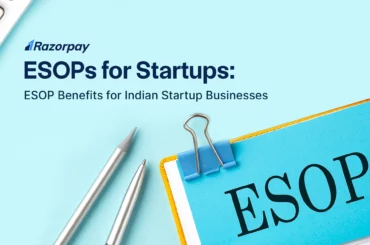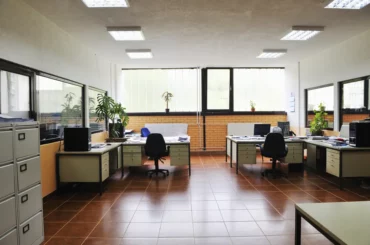Enterprise resource planning (ERP) refers to a type of software that organizations use to manage day-to-day business activities. These include accounting, procurement, project management, risk management, customer relationship management (CRM), supply chain operations and so on.
Here’s a quick activity before you continue reading – open your browser and search for enterprise resource planning. Within seconds, you will see a huge amount of information coming up and it ends up getting overwhelming, doesn’t it? Not to mention a little confusing.
Every website you open has its own definition of ERP and the information varies from tab to tab. To help you get a better understanding of what is an ERP and how can it transform your business, here’s a read on all you need to know before getting a solution for your business.
Table of Contents
What is Enterprise Resouce Planning?
Enterprise resource planning (ERP) refers to a type of software that organizations use to manage day-to-day business activities like accounting, procurement, project management, risk management, customer relationship management (CRM), supply chain operations and so on. A complete ERP suite also includes enterprise performance management, a software that helps plan, budget, predict and report on the organization’s overall financial results.
ERP systems tie together a multitude of business processes and enable the flow of data between them. By collecting an organisation’s shared transactional data from multiple sources, ERP systems eliminate data duplication and provide data integrity with a single source of truth. Today, ERP systems are critical for managing thousands of businesses of all sizes and in all industries. To these companies, ERP is as indispensable as the electricity that keeps the lights on.
What does an ERP do?
The basic purpose of any enterprise resource planning system is to improve efficiency and profitability through improvement on how the company resources are spent and used, whether these resources are time, money, staff or something else.
The bottom line is, ‘if you can reduce the number of resources that are being used, without compromising on the quality and performance, it will help you run your business more efficiently and appropriately.’
ERP software eases some of the most tedious business processes by combining a number of reports and metrics across various departments into the same environment or ecosystem.
In the long run, this gives you an overview of what’s going on in an organisation and how are the resources being spent. An ERP system also makes it faster to find the information or report you are looking for because everything is in the same place. With an ERP in place, you no longer have to search through spreadsheets or look through different business applications to find that kernel of data you need; it’s all available and accessible right from the ERP interface.
[Also Read Understand Stock Keeping Unit The Right Way]
What are the benefits of an ERP system?
As stated above, the obvious answer to this question is that an ERP system enhances efficiency and profitability. Digging a little deeper into how ERP software achieves these overarching goals, listed below are a number of other perks to this resource management platform. An ERP system can:
- Reduce overhead costs of companies by folding a number of business tools and applications into one system
- Cause individual operations/departments (warehouse, accounting, HR, etc.) to work faster
- Automates specific processes that would otherwise require manpower to complete
- Improve business data analytics for better, more accurate and actionable insights
- Positively impact customer relationships by being an overall faster, more efficient company to work with
- Be customized to focus on the aspects of your business that are most aligned with the current goals and needs
Outside of these benefits, it is also worth mentioning the ease of use that an EPR system can provide. If you’re still handling fundamental business processes through excel spreadsheets or on paper, the modern interface of an ERP system can alleviate a lot of headaches and vastly speed up the process. ERP systems gets integrated with your existing equipment and business tools, so there are no substantial upfront costs needed to upgrade the existing equipment.
Most ERP software can be loaded into any device that is internet compliant (laptops, tablets, mobile phones etc.). This helps save on business costs because you don’t need to invest in a whole new system or computer; the software will work with your existing devices.
Lastly, running your ERP system through a mobile device allows you to keep track of your business even when you aren’t physically there.
5 signs that your business is ready to have ERP
You’re spending more time on daily activities
If it’s taking longer to manage key activities, like closing the books, managing inventory etc, it’s time to browse for ERPs. ERP software integrates solutions and data into one system with a common interface, making it easier for business units to communicate and do their jobs effectively.
You have many unanswered business questions
Can you easily answer important questions about your business – such as revenue per product line or the number of returns? If not, segregated systems and a lack of access to metrics and KPIs may be holding you back. Enterprise resource planning software is designed to address these challenges.
You have runaway business processes
Are there areas where your processes are getting away from you? Maybe it’s harder for you to manage inventory, satisfy customers, or keep costs in check. If so, your business processes may need to be restructured to accommodate growth or changing priorities – a natural fit for ERP software.
You have manual processes with multiple data sets
Are most of your departments using their own applications and processes to get things done? If so, chances are you’re spending too much time on duplicate data entry. When information can’t flow between systems, reporting takes longer, errors happen often, and decision making is hampered.
You’re missing out on opportunities
Are you spending a lot of your time in running the business that you are not able to pursue exciting new opportunities?
Newer ERP systems include advanced, intelligent capabilities, like machine learning and predictive analytics, that make it easier to identify and capitalise on profitable new ventures.
If your business growth has become stagnant or you feel that your resources aren’t being used as efficiently as they could be, an ERP system may be the best solution.
You’ll have a better grasp of how your company is performing because this software combines a number of different processes into one system. This saves you a lot of time and a number of those stressful headaches because you don’t have to gather reports from each operation separately. You’ll quickly see overhead costs drop and your bottom line grow, once you have a suitable ERP up and running for your business.





